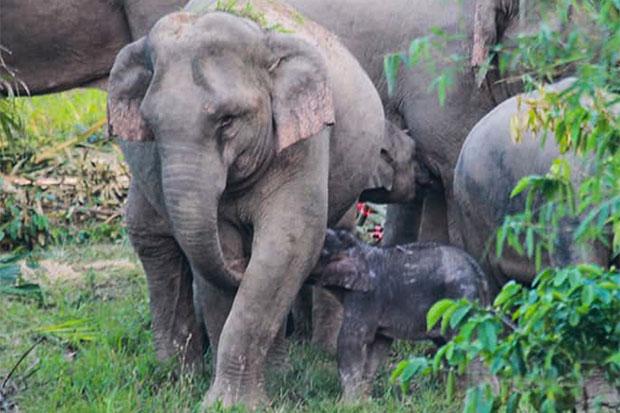The saying “an elephant never forgets” has new meaning this week, as a video of a rescued Asian elephant reuniting with its mother goes viral.
Shot on the
nonprofit Elephant Nature Park sanctuary in northern Thailand, the video shows
a young female Asian elephant named Me-Bai nuzzling and interacting with her
mother, Mae Yui.
According to
Natthanit Sommana, a spokesperson from the sanctuary, Me-Bai spent about three
and a half years with her mother in another part of Thailand until she was sold
to give rides to tourists.
“Because she
was too young, she began to lose weight and could not carry the tourists any
longer,” Elephant Nature Park, which is based in Chiang Mai, wrote on its
YouTube page.
The young
elephant spent three to four years away from its mother, but was recently
rescued and brought to the sanctuary. She was nervous and wary of people at
first but soon adjusted to her new surroundings, park staff said.
The video of
the reunion of a long-separated mother and daughter is the result.
“Now, Mae
Yui’s owners and Elephant Nature Park are working together to rehabilitate Mae
Yui and Me-Bai so that they can return to the wild and live free,” the group
writes.
Preston
Foerder, a psychologist at the University of Tennessee, Chattanooga who studies
elephant behavior, says releasing former work elephants into the wild is
extremely difficult, since they are no longer afraid of people and often get
into trouble. But, he adds, they can live well on natural sanctuaries.
In the wild,
elephants typically stay with their mothers at least until they are adolescents,
around 11 years old, says Foerder. "Elephant years are pretty close to
human years.”
Between 2008 and 2009, researchers from Mahidol University in Thailand and Emory University in the United States studied Asian elephants at the park to learn how they “console” each other after being stressed by helicopters or dogs. They learned that elephants comfort their companions by approaching them, chirping softly and stroking their head and genitals. (Behavior that can be observed in the video above.)
Foerder says
such behavior is typical. "Their trunks are very sensitive, so they
communicate with touch, as well as scent and sound," he says.
Elephants
have a sophisticated system of communication; they can alert each other to
danger, and respond to deaths of family members, among other behaviors. (Check
out this guide to elephant calls.)
Still,
animal behavior expert Frans de Waal of Emory University cautions that it’s
also possible the elephants didn’t recognize each other and are merely a
compatible pair. “There is no doubt about elephant feelings and bonding, but we
humans like to read the mother-child relation into this,” says de Waal.
“It is
possible the two remember each other but the video itself does not necessarily
prove this.”
But Joyce
Poole, a National Geographic explorer who studies elephant behavior, says,
"The heart-touching story about the reunion of a mother and baby elephant
illustrates beautifully the incredible memories and love elephants have for one
another."
"It is
with this science-based understanding of elephants as empathetic beings that we
ask [countries to amend their treaties] to protect elephants from brutal
capture, separation from family, and export to zoos.”
Conservation
of elephants is needed, says Foerder, because they have been under assault from
poaching and loss of habitat. "There isn't much wild room left for Asian
elephants," he adds.

Comments
Post a Comment